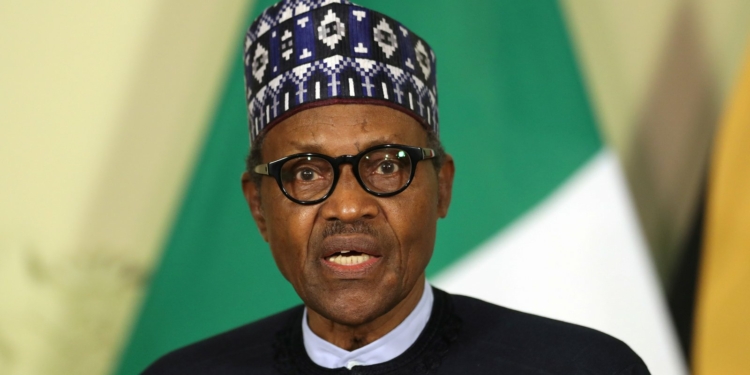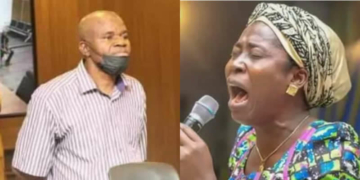Immunity is one of the constitutional privileges the President enjoys in Nigeria. Section 308 of the Nigerian constitution confers immunity from criminal prosecution on the President. Immunity is protection or exemption from something, especially an obligation or penalty. This clause provides Immunity from Trial for the President, Vice-President, Governor and Deputy Governor during the Subsistence of Their Tenure.
A Peek Into Section 308
Section 308 of the Constitution states that:
(1) Notwithstanding anything to the contrary in this Constitution, but subject to subsection (2) of this section –
(a) no civil or criminal proceedings shall be instituted or continued against a person to whom this section applies during his period of office;
(b) a person to whom this section applies shall not be arrested or imprisoned during that period either in pursuance of the process of any court or otherwise;
(c) no process of any court requiring or compelling the appearance of a person to whom this section applies, shall be applied for or issued: Provided that in ascertaining whether any period of limitation has expired for the purposes of any proceedings against a person to whom this section applies, no account shall be taken of his period of office.
(2) The provisions of subsection (1) of this section shall not apply to civil proceedings against a person to whom this section applies in his official capacity or to civil or criminal proceedings in which such a person is only a nominal party.
(3) This section applies to a person holding the office of President or Vice-President, Governor or Deputy Governor; and the reference in this section to “period of office” is a reference to the period during which the person holding such office is required to perform the functions of the office.
Buhari Serially Flouts Court Order
Months after Buhari was sworn in as the President of Nigeria in 2015, his promises were tied to achieving his manifesto within the framework of the rule of law. Buhari promised that his government would be fair, just, and scrupulously follow due process, and the rule of law, as enshrined in the Nigeria Constitution.
“Again, as with every action of the government that I lead, we would be fair, just, and scrupulously follow due process, and the rule of law, as enshrined in our Constitution. I will lead by example to ensure the prudent management of Nigeria’s resources. The government will plug the leakages that fuel corruption in Nigeria.”
But these turned out to be mere words written on paper to make his statements captivating.
In 2015, Nigeria’s former national security adviser, Sambo Dasuki, was arrested for allegedly stealing $2bn (£1.3bn). Mr. Dasuki was granted bail at least six different occasions by various courts, but the Nigerian government persistently refused to comply with the court orders.
In the wake of his trial, a Federal High Court in Abuja, presided over by Justice Adeniyi Ademola in 2015 ordered the release of Mr. Dasuki’s passport and permitted him to travel abroad for three weeks on medical grounds. Despite the order made on November 3, the SSS refused to release Mr. Dasuki.
Again, the former NSA and four others were allowed bail on December 18, 2015, with a similar condition to provide a bond of N250 million by Justice Hussein-Baba Yusuf. Although that condition was fulfilled, he was released four years later after the Court of Appeal in Abuja declared the continued detention of the former NSA since December 29, 2015, by the DSS as illegal, unlawful, and unconstitutional.
Also, Buhari flagrantly disregarded court orders in the case of El-Zakzaky. Mr El-Zakzaky and his wife were charged to court by the Kaduna State Government for their alleged roles in the death of a soldier in December 2015. They were arrested in December 2015, after the Nigerian Army extrajudicially killed over 300 followers of the Shiite cleric.
For the most part of the detention period, Mr El-Zakzaky and his wife were held at an undisclosed location by the State Security Service (SSS). Mr. El-Zakzaky was in detention without any trial for over 17 months.
On December 2, 2016, Justice Gabriel Kolawole of the federal high court in Abuja ordered the release of the leader of the Islamic Movement in Nigeria, Ibraheem El-Zakzaky and his wife, Zeenat from the custody of the Department of State Services. Aside from the order of the court to release them, the court also ordered that the DSS should pay the couple the sum of N50m as compensation. This court order was disobeyed.
El-Zakzaky was eventually released in July 2021.
On the recent new naira notes, Buhari’s administration came under attack for flouting the interim injunction of the apex court suspending the implementation of the February 10 deadline on the use of the old banknotes. The Supreme Court granted an interim injunction on February 8 restraining the CBN and the Federal Government from implementing the February 10 deadline. This was however flouted.
On Thursday, February 16, Buhari said he has directed the Central Bank of Nigeria (CBN) to extend the validity of old N200 notes till April 10. The president also said all existing old N1,000 and N500 notes will remain redeemable at the Central Bank of Nigeria (CBN) and designated points for 60 days.
Buhari flouted this order with people raising concerns that this could lead to anarchy.
The Law is Supreme
Qudus Alalafia, Head of Chambers, Clemesis Associates, Wuye, Abuja, said that the president’s disregard for court orders spells great doom for the country. Alalafia noted that the law is supreme over anybody regardless of status and position.
“if the body who is responsible in terms of enforcement of the law would now enforce the law against a third party, but at every point in time when judgment or rulings or orders are being given against it, it refuses. It is a disregard for that law. When we talk about rule of law, we talk about the supremacy of the law over everybody. The long arm of the law should be able to catch up with whosoever flout its orders, even including the draftsman.
“With respect to President Muhammadu Buhari, for me, when you have a military man in native attire, the instructions, the way he was molded, all these things contribute to how he would react. This is not the first time President Muhammadu Buhari will be flouting court orders. The time of Sambo Dansuki, the time of Ibrahim El Zakzaky in which court at one point or the other granted them bail and he was saying that based on the security of the nation, he would not respect the decision of the courts”
Alalafia said that instead of flagrantly abusing court orders, the president is expected to appeal or go back to that same court to set it aside.
“When the court has given orders, it’s either your appeal that order or go back to that same court to set aside its order. Not to fold your arms and say no, and engage in what you pick, what to follow and what not to follow. No, that’s not the best for the country. The masses too are human beings, blood flows in their body and when they see that their leaders are not respecting court orders, obviously, they too will not respect it.
“If they know that orders are given against the government, the government carries out its constitutional duty, because this goes beyond statutory duty. It is constitutional and the ground norm. If you have a duty to enforce the law, and you’re not enforcing it, that means it amounts to gross misconduct, which is grounds for impeachment.” he said.




Discussion about this post